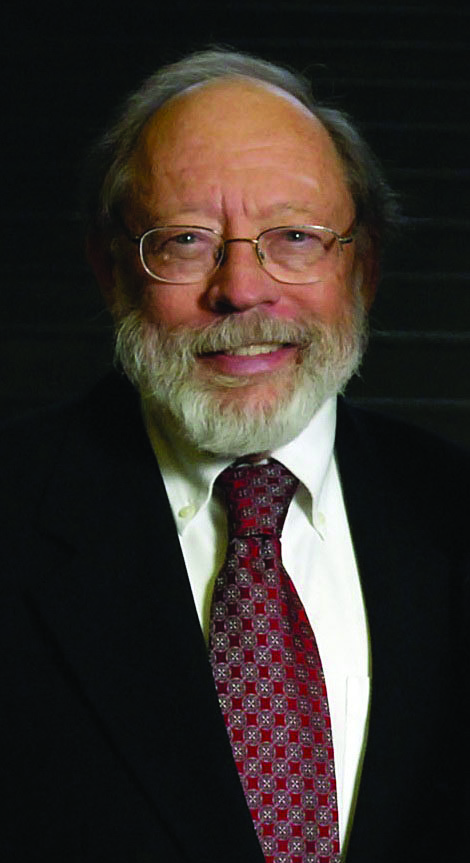
A prize-winning author, professor and lecturer regarded as one of the pioneers of environmental history will close out the 2011-12 season of the E.N. Thompson Forum on World Issues at the University of Nebraska-Lincoln.
Donald Worster, who holds the Hall Distinguished Professorship Chair in American History at the University of Kansas, will present "An Unquenchable Thirst: How the Great Plains Created a Water Abundance and Then Lost It." The talk will begin at 7 p.m. March 28 at the Lied Center for Performing Arts, 301 N. 12th St.
Worster will present the current issues relating to water, agricultural production, the natural environment, economic development and global food security within the historical context of the 1862 legislation that shaped the Great Plains. That year, Congress passed the Homestead Act, the Morrill Act, the Pacific Railroad Act, and the act to establish the U.S. Department of Agriculture. Also, 1862 saw the Dakota War, a conflict that set the nation on a path of military suppression of the region's American Indians.
The Great Plains, a region periodically afflicted by severe drought, plays a crucial role in world food production. In the past, going all the way back to 1862 and the passage of the Homestead Act, little thought was given to sustainably managing our water resources, said Richard Edwards, director of the University of Nebraska's Center for Great Plains Studies.
"The region paid a terrible price in the 1930s for this negligence, and even today conflicts over water policy, water rights, and water usage are chronic," he said. "Professor Worster will help us understand our dilemmas in historical perspective."
The lecture is co-sponsored by the Center for Great Plains Studies' symposium "1862-2012: The Making of the Great Plains." The symposium will examine the impact of Congress' passage of those four pieces of historic legislation that fundamentally shaped the Great Plains as well as the nation. For more details on the symposium, visit http://www.unl.edu/plains.
Worster, a native of California who grew up in Hutchinson, Kan., studied American history and literature at Yale University, where he earned his Ph.D. He has served as president of the American Society for Environmental History, sits on several editorial boards, and is advisory editor for the Cambridge University monograph series, "Studies in Environment and History."
Worster has received several honors, fellowships and awards, including being the first nonscientist to receive the Distinguished Achievement Award from the Society for Conservation Biology.
His research interests primarily address the emerging field of environmental history, the rise of conservation and environmentalism, and the impact of the natural world on human society.
This season's Thompson Forum lectures focus on the theme of water and global security.
To reserve free tickets, call the Lied Center at 402-472-4747 or 800-432-3231. Tickets may also be picked up in person or ordered by downloading a form from the forum's website, http://enthompson.unl.edu. All tickets are for general admission seating.
Thompson Forum lectures are available live online at http://www.unl.edu, and on Lincoln TimeWarner Cable Channel 21 or 5, UNL campus Channel 8 and UNL's KRNU radio (90.3 FM).
Sign language interpreters will be available at each lecture for the deaf and hard of hearing.
The lecture series is a cooperative project of the philanthropic Cooper Foundation, the Lied Center and UNL. It was established in 1988 to offer all Nebraskans a better understanding of world events and issues.
More details at: http://events.unl.edu/2012/03/28/57769/